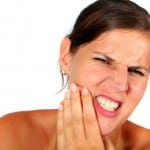 If you have a troublesome broken tooth, you don’t need to worry. With our amazing restorative treatments we can patch you up and have you fighting fit again in no time.
If you have a troublesome broken tooth, you don’t need to worry. With our amazing restorative treatments we can patch you up and have you fighting fit again in no time.
Treating a broken tooth
There are many possible causes of a broken tooth, including sports injuries, falls, accidents and biting down on hard foods or other objects. Sometimes it’s obvious that a tooth is damaged, but in other cases the signs may be more subtle and a dental X-ray will be used to confirm a fracture.
If you have a broken tooth, there are various options open to you including a filling for a minor chip, an inlay or onlay for more extensive damage or a crown for a severe fracture. Your dentist will carry out an X-ray to ascertain the degree of damage and then talk to you about your options once they have the results. At this point, your dentist will explain what the different treatments are, how they work and you can ask as many questions as you like. If the tooth is damaged it’s a good idea to repair it quickly to reduce the risk of any further damage going forward.
Preventing dental damage
Sometimes, accidents are inevitable. However, there are often steps that can be taken to minimise the risk of an injury, including:
- wearing a mouthguard if you play sport
- maintaining good oral hygiene
- seeing your dentist for regular check-ups
- avoiding using the teeth to bite down on hard objects, such as trying to remove bottle tops
- always wearing a seatbelt
- taking care on slippery surfaces and wearing suitable footwear
Signs of a broken tooth
Possible symptoms of a broken tooth include sudden dental pain, heightened sensitivity and a feeling of weakness in the tooth, which may become more intensive if you try to use the tooth, for example to chew.
If you need attention for dental damage, we are here to help! Call us today to book your appointment and banish pain for good.





 There are many conditions that affect us when we sleep. Two of the most common are snoring and sleep apnea. Both of these affect the way we sleep and can cause associated health problems during the day. Another less common but also debilitating sleep disorder is known as bruxism.
There are many conditions that affect us when we sleep. Two of the most common are snoring and sleep apnea. Both of these affect the way we sleep and can cause associated health problems during the day. Another less common but also debilitating sleep disorder is known as bruxism.

